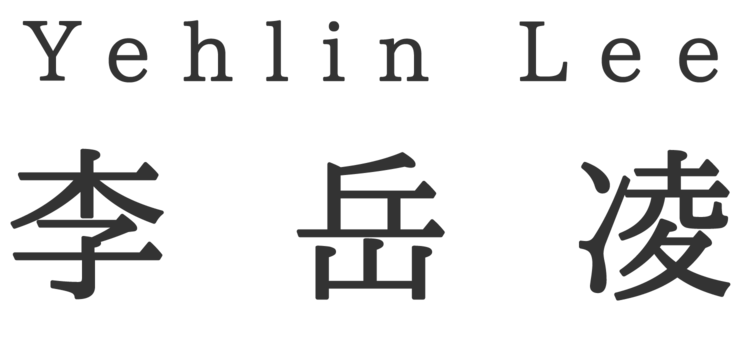2013 Interview by "Photography Works in TAIWAN"
Photography Works in Taiwan is a webzine organised by book designer 林宜賢 (Ricky Lin), and photographer 青睞肯 (Ken Lai). This webzine is focused on photography works from Taiwan. They have exhibited and interviewed more than 20 outstanding Taiwanese photographers.
It's great honor to be featured by them. And we have the following interview:
Q1. What kind of work you do? What kind of role you play?
Independent photographer
Q2. How do you define your relationship with photography?
It's a way to know your self, and the relationship with outer world.
Q3. When and what makes you want to photograph?
Since 2001, I began to create sound art works. They were mainly in electroacoustic, musique concréte composition, and humanistic soundscape recording. After spending several years in Europe, I was deeply disappointed about the Art environment nowadays. Since 2008, I stepped on yoga mat and started to practice yoga, to sooth my mind and body. It was since late 2011 that I start to consciously use photography as a medium of my art.
Q4. When is Photography to you?
As any good art, it is a persistent practice to approach the inner self.
Q5. What is important to you in photography training?
Taste and inner strength
Taste is not a fixed noun, but shall be an active verb that needs to be cultivated. Taste, in chinese, is a term composed by two characters, 品"pĭn" and 味"wèi". The original meaning of "pĭn", is to distinguish the good ones from bad ones. It is necessary to cross the boundary of art genre, time, space and culture. Paul Graham(the silicon valley one) has wrote a great article on this topic. As for "wèi", is to be original, with one's own personality. That is, while making a selection, one do not follow the audience, and not against the audience just solely because of anti-audience. It is necessary to go further than the seemingly limited selections, to solve the question with one's own point of view.
Inner strength is the ability to know oneself, and to get along with oneself. It is not to dictate or control oneself with what shall I do and how to do, but to aware of how one's thought and emotion forms(Cetanā, cause), and why oneself reacted so (Vipāka, result). By observing one's sensory experience, it is possible to recognize old habits in creativity and to transcend it.
Q6. Who are the photographer you prefer? Or those who influenced you?
I prefer art that has mental & spiritual intensity.
Photograhers:
Henri-Cartier Bresson,Joseph Koudelka,Chien-Chi Chang,Alex Webb,Pinkhassov
Musician:
Jan Garbarek,Keith Jarrett,Jean-Claude Eloy,Dajuin Yao
Q7. What camera and lens you prefer and use?
I do not have much gears, only a Fujifilm X-Pro1 with me.
Q8. What is your future photo projects?
To relax attentively.
On the yoga mat, same as on the street.
I would keep developing the direction of what I have, and put my effort on post-processing and sequencing. See if I can join sound or other medium, and shape them into a concrete entity.
Q9. Please introduce your resume.
- 2013 Taipei Art Photo Young Photographers Slideshow
- 2013 National Fine Art Exhibition, National Taiwan Fine Art Museum
- 2012 Taipei Photography Festival, Taiwanese Emerging Photographers
- 2012 Young Photographers Award, Jury Prize, TIVAC, Taiwan
---
"Photography Works Taiwan" Editor's Note
by 林宜賢 Rick Lin
There was a soundtrack in my computer. My friend who sent me this track, reminded me to listen attentively. The name of the artist was Yehlin LEE. After several years, in a photographic essay "TAIWAN AS IS" which wins the young photographer award, I saw this name again. This brought me back to the vague impression of the old days.
If the Taiwan scenes in I-Hsuan Chen's photo do not resemble Taiwan, then the ones of Yehlin Lee are the opposite. His Taiwan scenes are a very Taiwanese. Seldom do I feature street photography works, but the street scene he shoots just excites me. Although it looks like casual snapshots, it contains complex imagery semantic meanings. The pictures freezed a moment, just like collages that has profound implication.
I like a phrase he puts in his statement: "I believe a good art will eventually be a persistent practice." Although Yehlin Lee has just been consciously taking photos for three years, he has a deep reflection on the artistic creation and the practice of observation. I believe this depth, coming straight from what he has accumulated in sound art, which makes him shoot a sensitive and powerful work like this.

